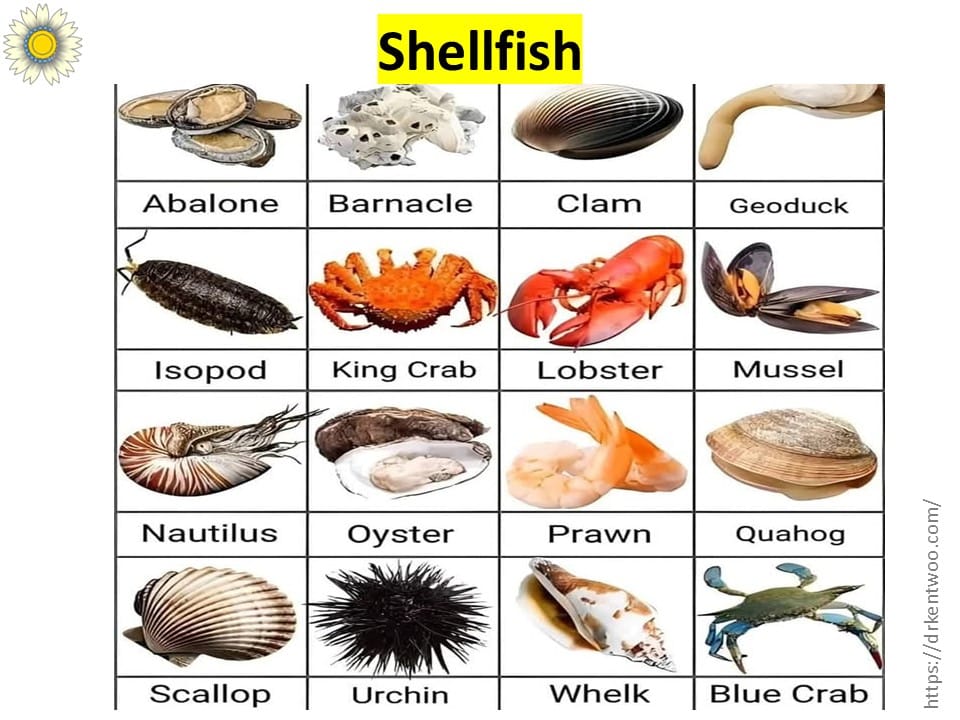Shellfish Allergy: Causes, Symptoms, and Management

A shellfish allergy is different from a fish allergy and is triggered by proteins found in crustaceans (shrimp, crab, lobster) and mollusks (clams, mussels, squid). Shellfish allergy is one of the most common food allergies and can cause severe, life-threatening reactions.
What is a Shellfish Allergy?
Shellfish allergies are primarily caused by tropomyosin, a protein found in shellfish muscle. Unlike some food allergies that children outgrow, shellfish allergies are usually lifelong.
Types of Shellfish to Avoid
Crustaceans (Higher risk of severe reactions)
- Crab
- Crawfish (Crayfish)
- Lobster
- Prawns
- Shrimp
Mollusks (Less common, but can still trigger reactions)
- Abalone
- Clam
- Cockle
- Cuttlefish
- Mussels
- Octopus
- Oysters
- Periwinkle
- Scallops
- Sea cucumber
- Sea urchin
- Snail (Escargot)
- Squid (Calamari)
- Whelk
Cross-Reactivity Among Shellfish
- Crustaceans (shrimp, crab, lobster, prawns) share similar allergens, making cross-reactivity very likely. If you are allergic to one, your doctor may recommend avoiding all.
- Mollusks (clams, mussels, scallops, squid) are biologically different from crustaceans. Some people react only to crustaceans, while others react to both.
- If you have a crustacean allergy, allergy testing can help determine if mollusks are safe.
Click here to read: [Can I eat other shellfish if I am allergic to shrimp or prawn?]
Hidden Sources of Shellfish (May Contain Shellfish Allergens)
- Imitation crab meat (surimi)
- Fish sauce (sometimes contains shellfish)
- Worcestershire sauce (may contain anchovies and shellfish)
- Bouillabaisse (French seafood stew)
- Soy sauce (some varieties contain shellfish extract)
- Asian soups, broths, or stocks
- Fried foods (cross-contaminated in shared fryers with seafood)
Managing a Shellfish Allergy
- Read labels carefully. Many processed foods contain hidden shellfish-derived ingredients.
- Be cautious when dining out. Avoid seafood restaurants and buffets where cross-contact is likely.
- Avoid airborne exposure. Cooking shellfish can release allergenic proteins into the air.
- Carry an epinephrine auto-injector (EpiPen). Shellfish allergies can cause severe reactions.
- Consult an Allergist/Immunologist. Testing can help determine which shellfish are safe or unsafe.
FAQ: Shellfish Allergy
1. Can I be allergic to crustaceans but not mollusks?
Yes, but cross-reactivity can occur. An Allergist/Immunologist can help determine your specific allergy.
2. Is shellfish allergy the same as a fish allergy?
No. Fish (salmon, tuna) and shellfish (shrimp, crab) belong to different groups. Being allergic to one does not mean you will react to the other.
3. Can I develop a shellfish allergy later in life?
Yes. Shellfish allergies often develop in adulthood and are usually lifelong.
Conclusion
Shellfish allergy requires strict avoidance of crustaceans and possibly mollusks. With careful management and allergist guidance, individuals can safely navigate their diet while reducing risks.
The Allergy Immunology Clinic is here to help you with your food allergy.




